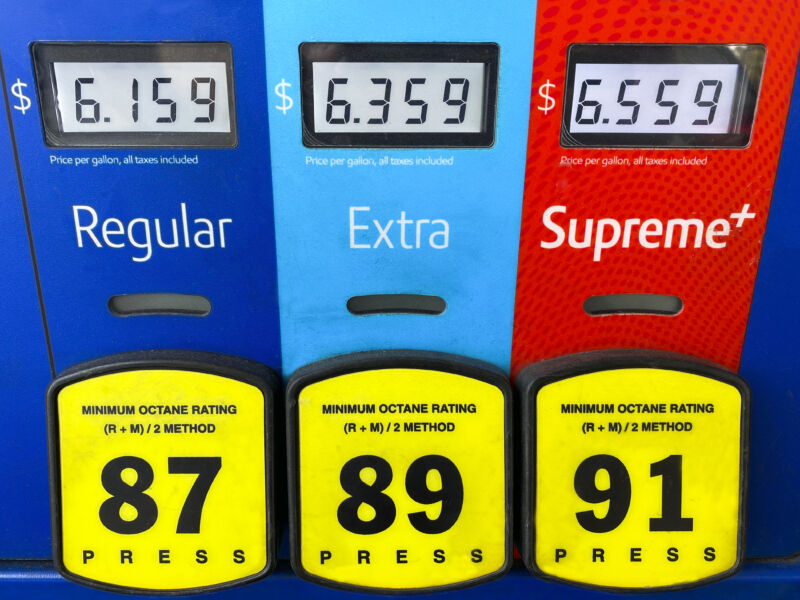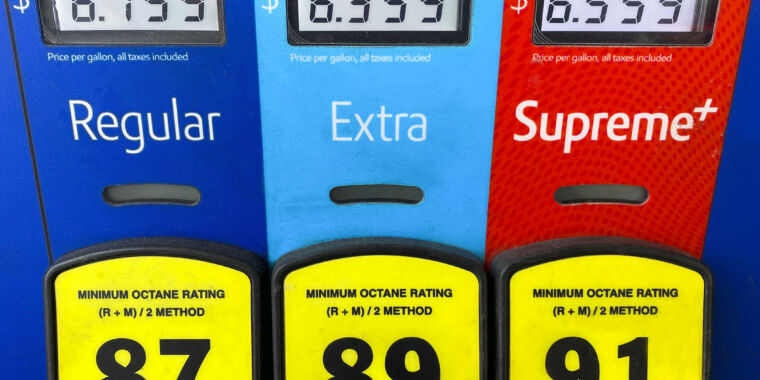
In the UK, it now costs over £100 to fill up a typical family car with petrol, and oil prices could soar further. But are such high fossil fuel prices a bad thing? While attention has focused on measures to address the global cost of living crisis, much less attention has been paid to a deeply inconvenient truth: Solving the climate crisis requires consumer prices for fossil fuels to remain high forever.
Saying something like that may seem tone-deaf. Millions of households in rich countries are faced with the choice between heating and eating. In poorer countries the situation is immeasurably worse. Rising gas prices have dramatically increased the cost of fertilizer, while the war in Ukraine is hampering exports of its wheat.
Together, these lead to rising food prices worldwide, a rise in inflation and a worsening of the already dire food security situation in places such as Yemen, the Horn of Africa and Madagascar. We are already witnessing widespread foot riots, like the one between 2008 and 2011, when citizens around the world protested the failure of their states to deliver their most fundamental right – the right to eat.
To mitigate the impact of high prices, we have seen a whooping reversal of energy policies worldwide. In November 2021, at the COP26 climate conference in Glasgow, governments pledged to tax carbon and eliminate fossil fuel subsidies. But faced with dramatic increases in the cost of fuel and electricity, those same governments have made efforts to cut taxes on energy, introduce price caps and introduce new subsidies.
But keeping global warming below 1.5°C will require a drastic reduction in fossil fuel use from now on. The unfortunate reality is that one of the most effective ways to get people to use less fossil fuels is to make them expensive.
The best way to move away from fossil fuels is, of course, that there are better (and preferably cheaper) alternatives. But investment in these renewable alternatives will only happen if people make a clear move to them, and that requires consumer prices for fossil fuels to remain high.
fuel riots
Of course, high fossil fuel prices are generally unpopular and can even lead to riots. Between 2005 and 2018, 41 countries had at least one riot that was directly related to fuel demand among the population. In 2019 alone, there were major energy-related protests in Sudan, France, Zimbabwe, Haiti, Lebanon, Ecuador, Iraq, Chile and Iran, many of which escalated into riots.
Colleagues and I recently published research showing that these riots are caused by price spikes, often after fuel subsidies have been abolished. These price spikes sparked fuel riots when citizens felt they had no other options to express their anger at government policies and actions (or when states tried to suppress them by force).
High prices, happy citizens
Is it possible to keep fossil fuel prices high without causing riots? The key is to keep consumer prices high by raising fuel taxes when international oil and gas prices eventually fall. For this to be politically acceptable, two things need to happen.
First, consumers will not accept high prices if it means high profits for fossil fuel companies. Maintaining high prices for consumers needs to be complemented by a radical overhaul of the tax system facing fossil fuel companies, and not just one-off windfalls. Those taxes would keep consumer prices high, even if the fossil fuel companies wouldn’t actually receive much — enough to cover reasonable costs, but not enough to invest in further fossil fuel production. As the International Energy Agency has pointed out, the amount of investment required in the production of new oil and gas is zero to reach net zero by 2050.
Second, consumers will be much more willing to accept higher fossil fuel prices if the extra tax they pay is returned to citizens as an equal carbon subsidy. Alaska has done something similar, putting some of its oil revenues into a “permanent fund” which it then pays out to each household every year via check (although this approach can go wrong – in Alaska, politicians eventually run public services). stopped due to payments from the state fund).
Getting an annual payment, equal to the taxes imposed to keep fossil fuel prices high, would take the pain of higher prices. It would also be progressive, as those who consume the most fossil fuels would pay more in tax, while those who consume less would pay less but receive the same compensation from the fund and thus make a profit. Additional compensation may also be needed for poor groups with a high consumption of fossil fuels, such as people with lower incomes who have to use their cars for work.
Rising energy costs are a disaster for poor consumers worldwide. But ironically, they also offer a chance to rid the world of its addiction to fossil fuels. If we seize this opportunity to keep fossil fuel prices permanently high, we can accelerate the transition to cleaner energy in a way that is fair for all and we can avoid deeper crises in the coming years.![]()
This article is republished from The Conversation under a Creative Commons license. Read the original article.

